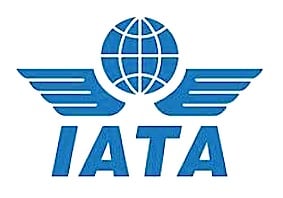The International Air Transport Association has reacted with disappointment to the European Commission’s proposed revisions to its passenger rights legislation (EC Regulation 261 or EC 261).

Tony Tyler, IATA Director General and Chief Executive, said: “There are some positive aspects to the Commission’s review but overall the package of proposed changes will still leave major deficiencies in the legislation. Many of the proposed changes will be difficult for governments to enforce, add unnecessary costs and incentivise behaviours by industry that will be ultimately detrimental to the interest of passengers.
“On the positive side, the Commission’s proposals introduce ‘trigger’ times for when a long delay becomes subject to financial compensation. These are five hours for flights of less than 3,500km, nine hours for flights between 3,500 and 6,000km, and 12 hours for longer flights. The proposals also introduce the concept of time limitations for required assistance in times of extraordinary circumstances such as the ash cloud crisis.
“The proposals recognise that delays come with a high cost on airline operations and that for passengers their impact varies with journey-length. They further acknowledge that airlines cannot be held indefinitely responsible to provide assistance in circumstances completely beyond their control. These are important outcomes. But we are disappointed that the much-needed review of EC 261 has resulted in proposals that deviate from international standards and which will be difficult to enforce. We had a great opportunity to improve a regulation that has been shown to be not fit for purpose. Despite the positive steps, the intended and unintended consequences of the Commission’s proposals will be to the detriment of both travellers and the airline industry.
“Airlines have every incentive to operate on schedule and deliver value for money service to their passengers. It’s the commercial reality of operating in a competitive service industry with very thin margins. The cost of delays and dissatisfied customers is something that every airline wants to avoid but that is not reflected in the proposed proscriptive regulation.”
Among many industry concerns with the European Commission’s proposals, IATA illustrated three with specific examples:
1. The Commission proposes special measures for connecting flights that put the complete burden for compensation for delays on the operator of the first flight. The Montreal Convention already sets out specific rules on the allocation of liability between carriers in such cases and in certain circumstances what the Commission proposes would actually amount to a breach of the Convention. Indeed, standard ‘interline’ agreements under which airlines enter into commercial co-operation already include operational practices, consistent with Montreal Convention, for missed-connections with the goal of getting the traveller to his or her destination as expeditiously as possible.
The unintended consequence of placing the complete burden on the first carrier may be reluctance on the part of carriers in Europe – in particular regional ones – to offer connections to long-haul destinations. “Even if, on a given first flight, only a handful of passengers miss connections, the potential liability could be greater than the entire revenue from that flight,” said Tyler. “The commercial risk of that unfair provision could result in airlines making the difficult commercial decision to focus on point-to-point operations instead of providing global connectivity to passengers through convenient hub transfers. People living in Europe will be poorer for this misguided requirement.”
IATA also noted that this provision will be impossible to enforce for some journeys with connecting flights to destinations outside of European Union territory and contravenes the territorial sovereignty of those third countries, interfering with their own consumer protection regimes.
2. The proposals treat a diversion as if it were a cancellation, triggering significant compensation to passengers. Nearly all diversions are made for safety reasons (mechanical issues or sick passengers being among the most common). While the proposals provide for exceptions, the reality is that airlines always place the safety of their passengers and crew at the top of the priority list. “Airlines will continue to make prudent decisions to divert when necessary. It is perverse for regulators to second guess and potentially impose penalties for a captain’s decision made in the interest of the health and safety of passengers and crew,” said Tyler.
3. The European Commission is proposing that, if a flight is cancelled and no further seats are available on its own services within 12 hours, the airline must consider re-routing on other airlines or modes of transport. There is no limit on cost or class of service. “Airlines will do all that they can to get a passenger to their destination. But the ticket price paid and the cost of re-routing should be related. If your Bic pen doesn’t work, you don’t expect to get a Mont Blanc as compensation,” said Tyler.
“Everybody is frustrated when travel plans are disrupted. And there is a legitimate role for governments to regulate protections for consumers. But to avoid unintended consequences, there needs to be a rigorous cost-benefit analysis. And no regulation should penalise airlines or their customers for airline decisions made in the best interest of safety. While we recognise some progress in the Commission’s proposals, the overall package falls down in these important areas. EC 261 needs to be revised. But these proposals alone do not do the job for passengers nor for the industry,” Tyler concluded.


